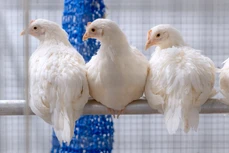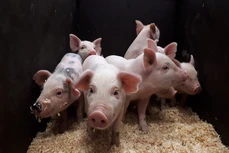About us


Our research focuses on two economically and scientifically important livestock species – poultry and pigs.
The poultry industry is the fastest growing segment of animal agriculture with more than 100 million tonnes of chicken meat produced every year to sustain increasing consumer demands. Most poultry worldwide are reared under intensive conditions, making them more vulnerable to diseases such as avian influenza virus. A better understanding of the chicken immune system allows us to reduce the use of prophylactic measures and improve husbandry conditions. In addition, growing consumer awareness of animal welfare continues to shape poultry industry practices.
Alongside our poultry research, we use pigs as a complementary model for human and animal health. Pigs are anatomically and physiologically closer to humans than traditional laboratory species and are therefore powerful models for understanding, diagnosing, and treating serious diseases. This work allows us to bridge gaps between basic immunological research, animal health, and biomedical applications.
The main interest of our research group is to better understand the development of humoral immune responses and the host response to pathogens during infections. We develop and utilise genetically engineered chickens and pigs for immunological and translational research. Our laboratory employs state-of-the-art technologies such as CRISPR/Cas9 genome editing, organoid systems and virus-like particle–based tools to create precise animal models and study immune system development and host–pathogen interactions.